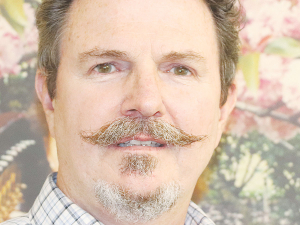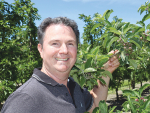A leading Hawke’s Bay orchardist says getting the recovery of the apple industry right in Hawke’s Bay is critical to the whole economy of the region.
Paul Paynter, of the Yummy Fruit company, says the apple industry is the economic engine of the region. He told Rural News it’s vital the recovery is successful, because if it isn’t, there won’t be an ability to sustain the lifestyles in the region.
Paynter believes an indicator of this will be the uptake of the Kanoa loans, which he says will indicate just how many orchardists are prepared to rebuild their businesses.
Paynter believes the apple industry has a good future. He says there is a desire in the markets overseas for our produce and says NZ has a great reputation for producing top quality, wonderful fruit.
However, he claims getting there means overcoming many problems which started with Covid and have continued. Paynter says while a smaller apple crop – in theory – should mean there are more people to harvest the crop, there is still low unemployment. He adds that getting key people such as engineers and others with the right skills is still difficult. Paynter says, some years ago, the industry was attracting large numbers of young people, but in recent years this has changed.
“I think the universities have lost their way. We don’t need people with communications and other degrees,” he explains. “We need young people with degrees in the biological sciences because they have a lot to offer and their skills are transferable. We have lots of jobs for people who understand biological systems, how to make things grow and how to produce quality food.”
Shipping, while improving, still remains a challenge and is expensive. Paynter says shipping is still cheaper and more environmentally friendly than delivering goods by land.
He says sending apples to the east coast of the USA is less expensive and more carbon efficient than landing them on the west coast of the USA and sending them by truck to the east coast.
Paynter says it’s no secret that the US-China relationship and the Ukraine war are causing problems.
“Poland normally ships its apples to Russia, but since they fell out, they shipped all their apples to Europe and collapsed the market there,” he told Rural News.
“The result of this is lower prices for NZ growers.”
Paynter believes there are opportunities over the next 30 years to put high quality fruit into Asia, which will make an orchardist a lot of money.
“But people have to see that vision and somehow make it happen.”


















